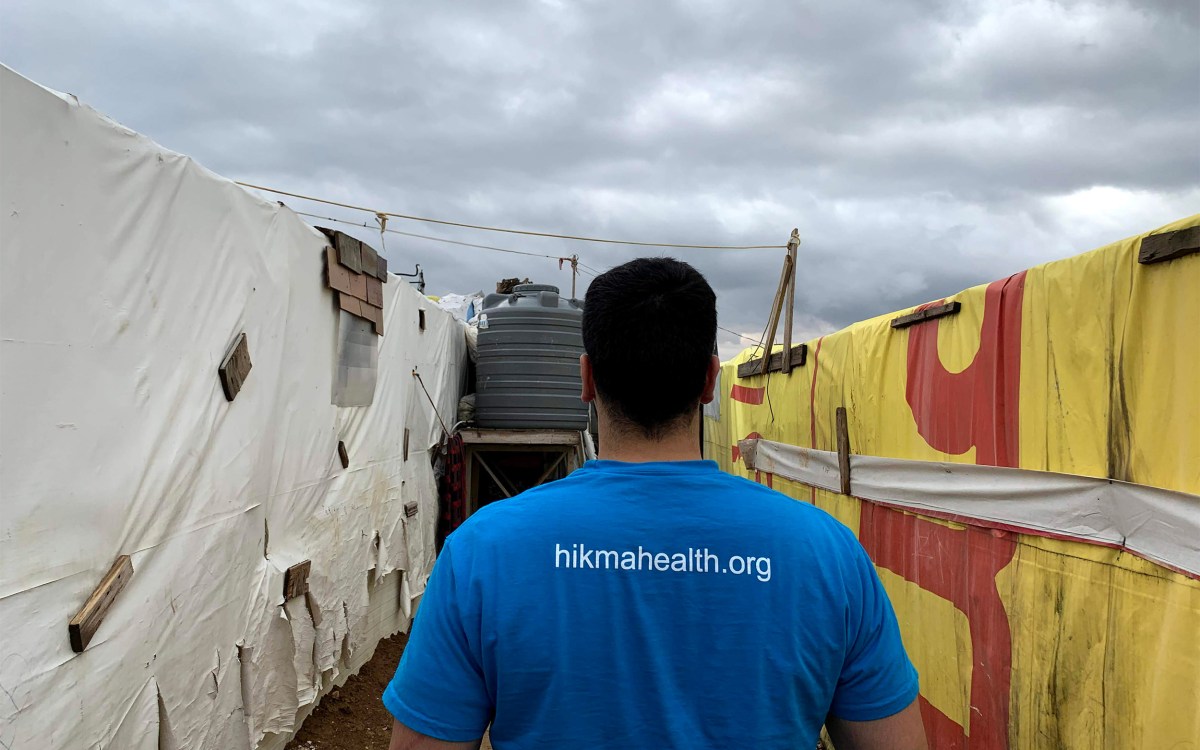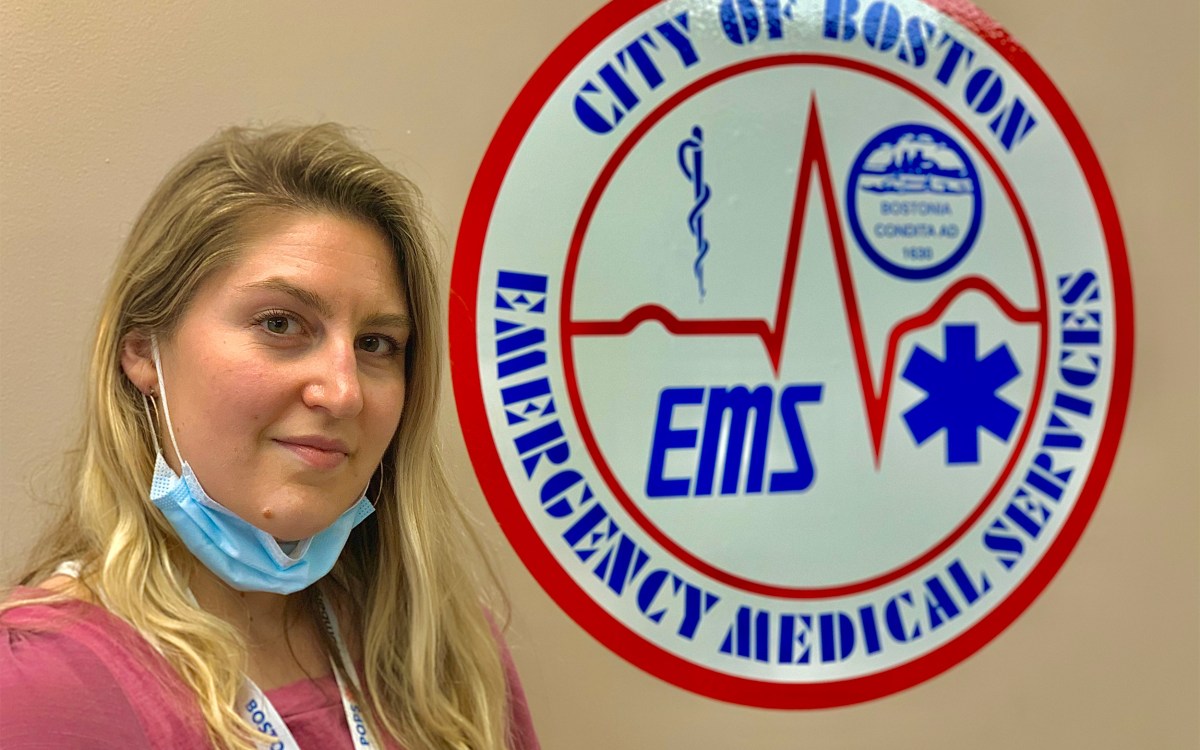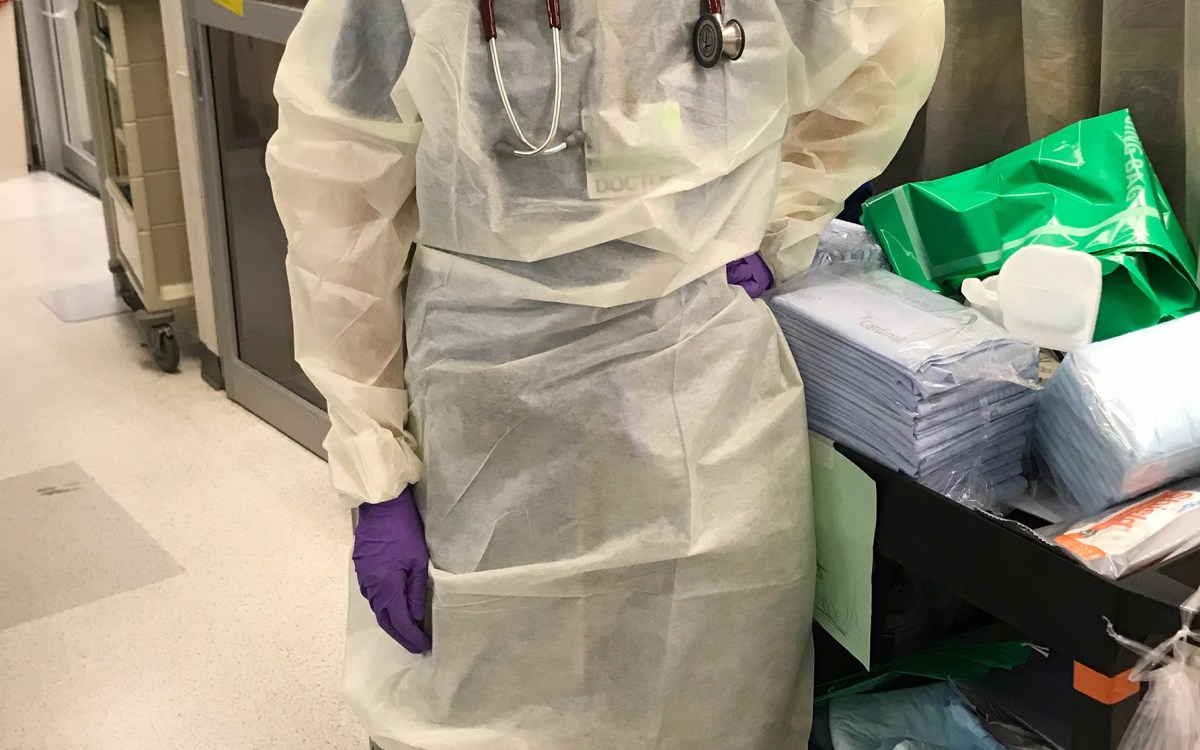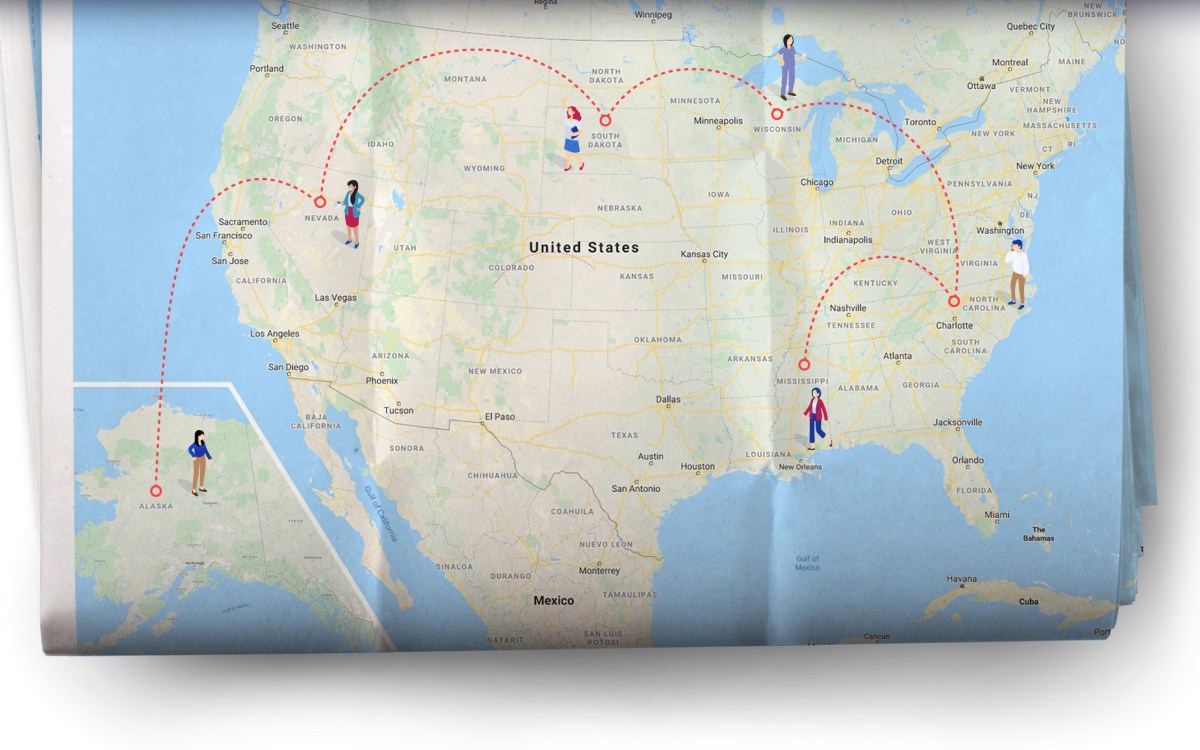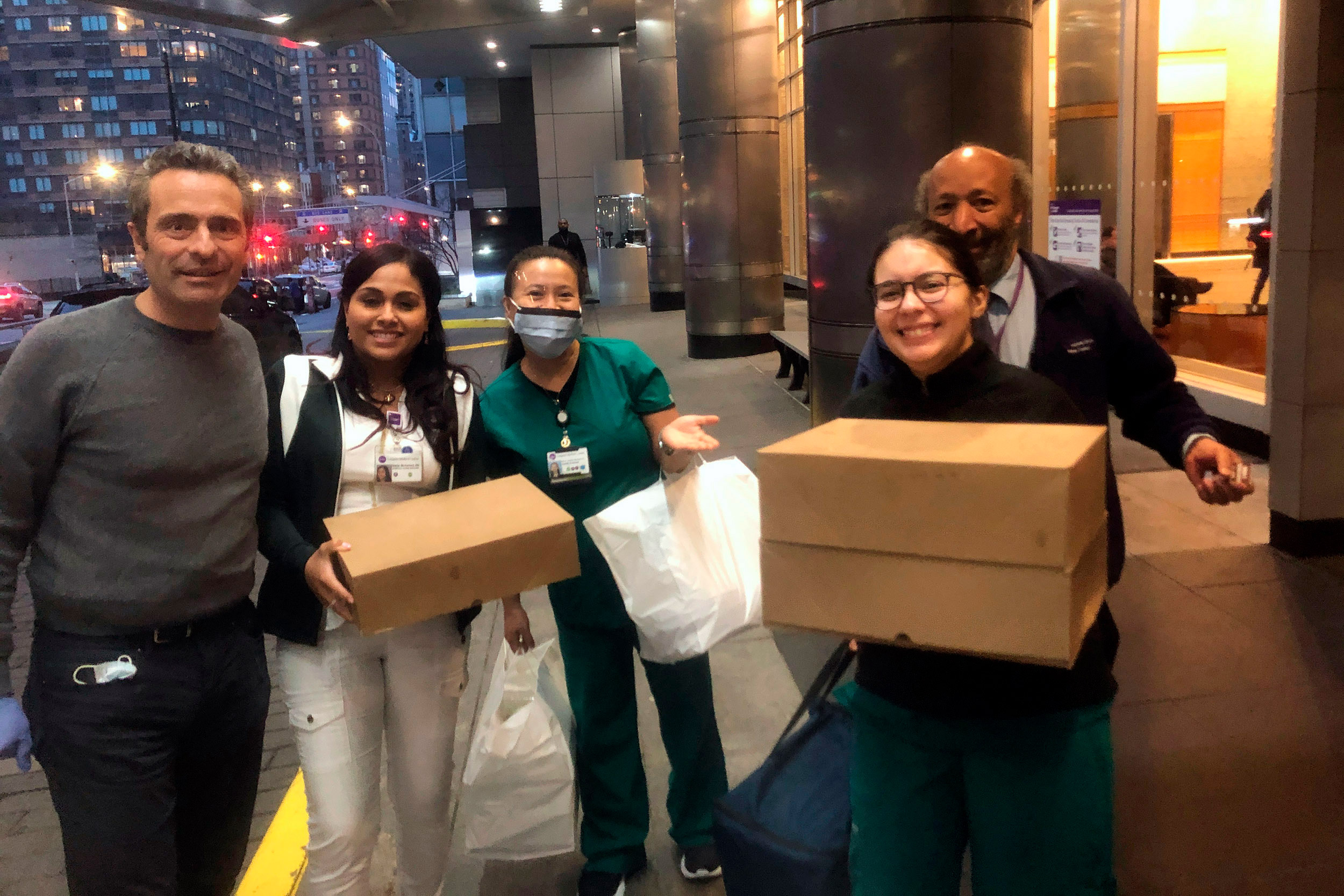
Luca Di Pietro (left) makes the first meal delivery from Feed the Frontlines NYC to the NYU Langone Medical Center’s Emergency Department.
Photos courtesy of Feed the Frontlines NYC
A time of need and a desire to help
Student volunteers find ways to make a difference amid the pandemic’s disruption and loss
The COVID-19 crisis has brought disruption, loss, and jarring change, but it has also fired in many students the desire to help and inspired creative ways to make a difference.
Shortly after Isabella Di Pietro ’20 returned home to New York from campus, Mayor Bill de Blasio ordered restaurants and bars in the city, the nation’s pandemic epicenter, to shut down, except for take-out and delivery business. That decision shook through Di Pietro’s family, their Tarallucci e Vino restaurants, and all of their workers.
“I was mourning the end of my senior year, and then came back to New York, and it hit me just how bad things were when my father had to lay off 95 of his 102 employees” and temporarily close four of his five locations, said Di Pietro, a history and literature concentrator.
Soon after, a friend in Toronto reached out and asked whether she could pay to have some Tarallucci e Vino meals delivered as a thank-you to health care workers in the city. Di Pietro’s parents delivered 40 to NYU Langone Medical Center that same night, and Feed the Frontlines NYC was born.
Di Pietro built a website and enlisted friends from Harvard to help her create a sign-up and payment system for others to buy and deliver restaurant meals for overworked hospital staffs. With help from her friends, Di Pietro contacted hospitals, fielded requests from reporters, managed partnerships with other restaurants and volunteers hoping to participate, and posted social media updates, working long hours with her father, Luca, at the restaurant.
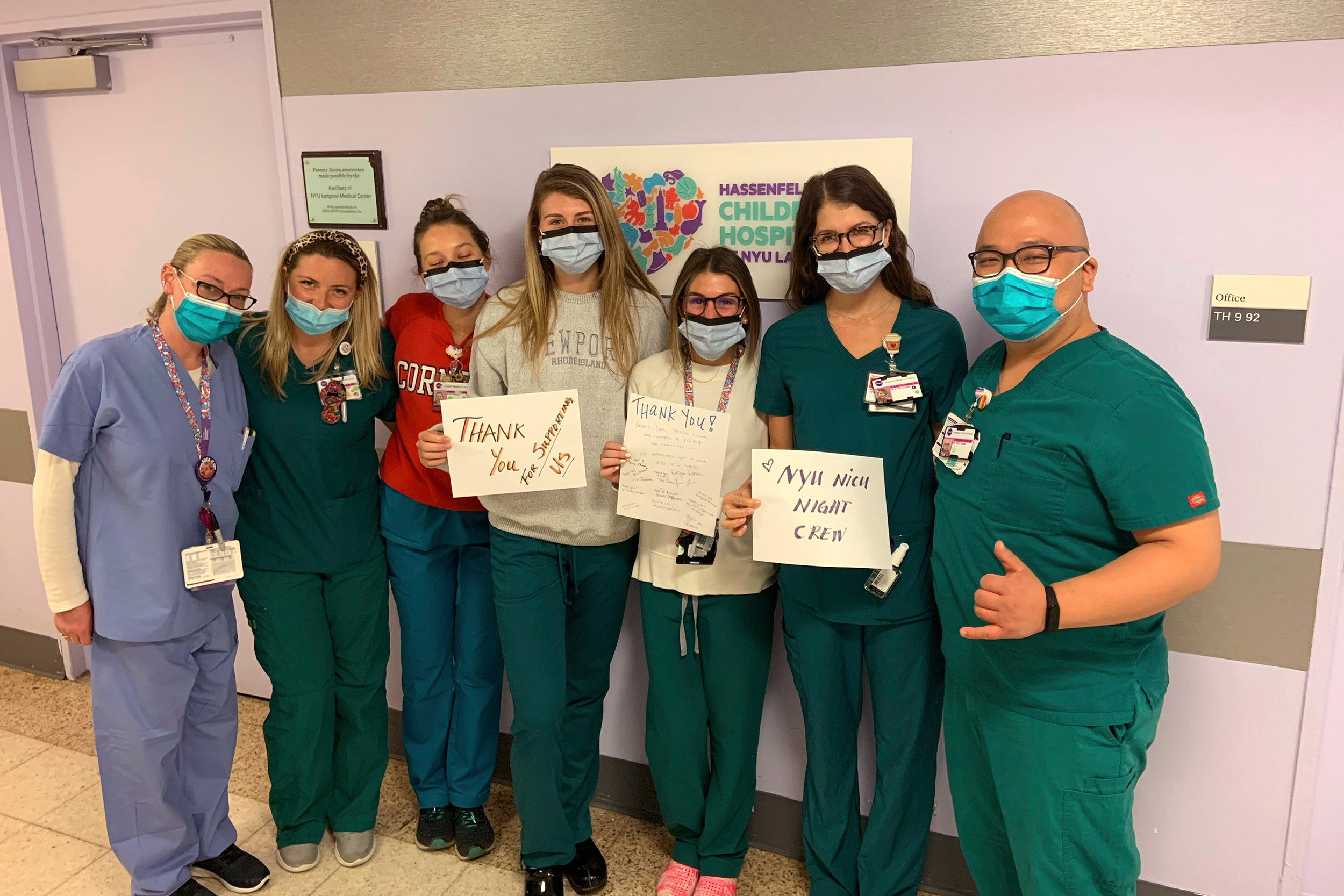
“It’s been a bit of a reaffirmation of a lot of my amazing friendships that I’ve made at Harvard, because my friends have been willing to step up and help with this right away,” said Di Pietro. “I think that a lot of people are struggling to find meaning and motivation for their schoolwork, so this is a really welcome outlet for some people to be able to make a difference in this crisis.”
In the past six weeks, Feed the Frontlines has delivered 73,000 meals in New York and brought 35 employees back to work at Tarallucci e Vino (and many more at 16 partner restaurants). Ten “sister” organizations have launched in other North American cities, including Boston. And Di Pietro recently took a leave of absence from Harvard to focus on the organization full time with plans to expand FTF to reach New Yorkers experiencing food insecurity as a result of the pandemic.
“For now, I’m committed to doing the work that I’m currently doing until there is no need any more,” said Di Pietro. “Even after the acute part of this crisis is over, there are going to be so many longer-term effects on the economy and on the workers who were laid off. There’s going to be a need for matching resources of free meals with communities that really need them, whether it’s health care workers or communities that have more traditionally needed support.”
Evelyn Wong ’21 returned home from campus looking to help. Wong knew that many elementary and secondary students were facing weeks of unstructured time, and many of her friends had mentored kids in college-readiness — and now had more free time themselves. On the plane from Boston to Los Angeles, she started planning a digital mentoring platform that would bring those groups together, and she asked friends from Harvard and MIT to help.
“I was thinking about a lot of the school closures in my area [in East L.A.], and equitable access to education is something that I’ve been passionate about,” said Wong, a joint concentrator in neuroscience and romance languages and literature. “This pandemic has exposed and exacerbated these inequalities, and because of that we wanted to target communities that needed help the most, whether it’s those that are undergoing housing insecurity or going through a difficult family situation.”
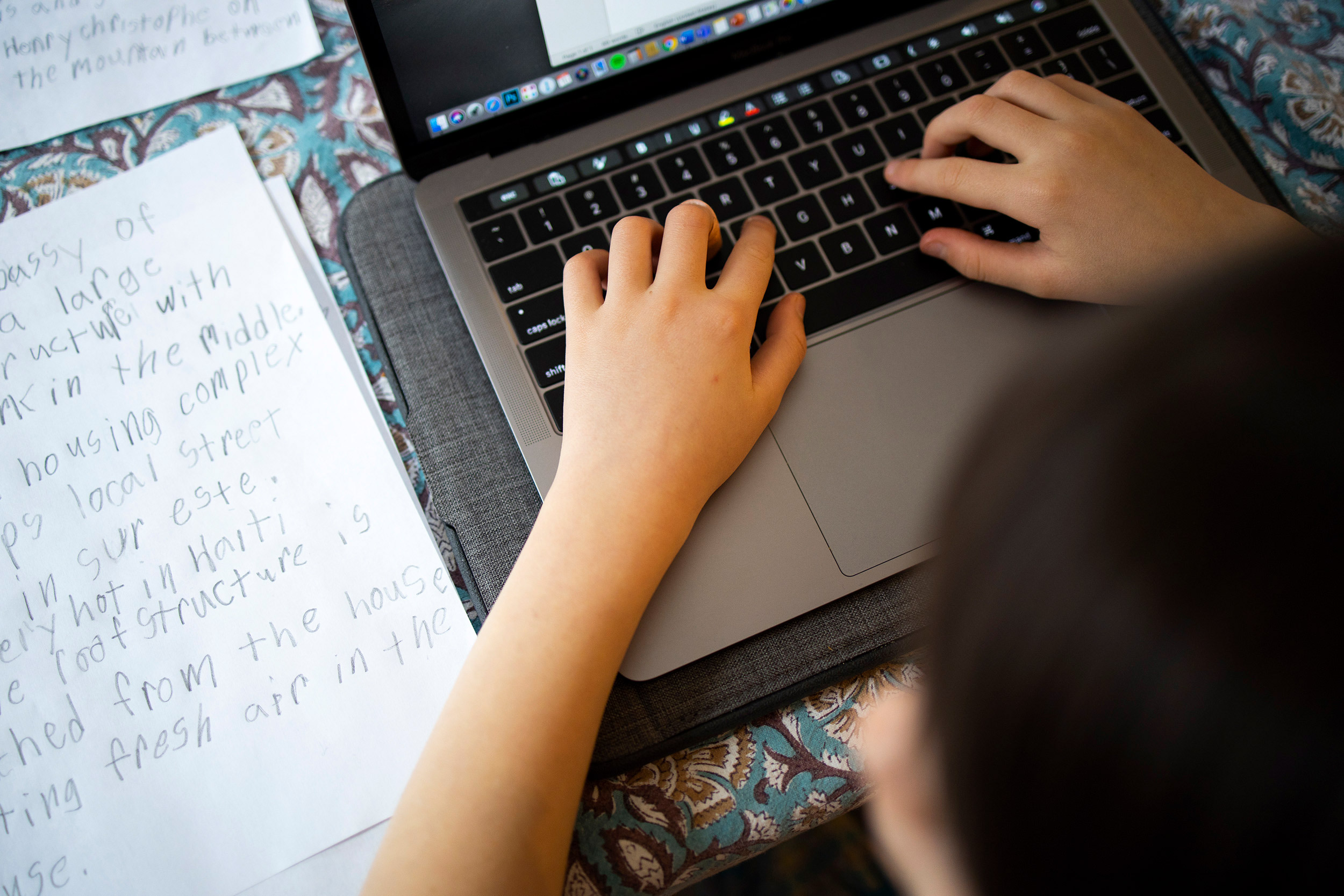
Evelyn Wong ’21 launched CovEducation, which has more than 1,500 volunteer mentors and almost 1,000 K-12 students.
Stephanie Mitchell/Harvard Staff Photographer
Wong’s group started a Google sign-up sheet for mentors, which ballooned into a Facebook group of 300 college students from across the country. Since launching as CovEducation on March 25, the group has attracted more than 1,500 volunteer mentors and almost 1,000 K‒12 students, through digital promotion and outreach by school administrations. The eight-person management team matches pairs based on interest and life experience, and the meetings take place online. CovEd leaders are also working to improve Wi-Fi access for mentees and translate materials into languages including Arabic, Hindi, Korean, Mandarin, Spanish, and Vietnamese.
“There are so many socioeconomic factors that play into these barriers that keep low-income students from getting access to elite education like this,” said Wong. Before arriving at Harvard, “I did not know anyone who had ever gone to an Ivy, and if I had [had a] mentor, it would have been a lot less scary to apply to a school like this.”
The student leaders of Harvard Votes Challenge (HVC) are also adapting a traditionally face-to-face experience for the new digital reality: voter registration. HVC members are working to achieve a rate of 100 percent on campus, and have expanded beyond its walls. Jahnavi Rao ’22, the director of high school engagement, acknowledged that while there are challenges to outreach outside of a school building, there are also opportunities for online engagement.
“There are still a lot of high schoolers at home with access to internet, and a lot of college students at home with access to internet, who can be connected and use their extra time to learn about civic engagement best practices and run virtual-engagement drives of their own,” said Rao, a government concentrator now back in her hometown outside of Philadelphia.
Jahnavi Rao ’22 has ramped up her work with New Voters, the nonprofit she founded in 2016. “This can also be a time where the youth voting bloc becomes a real force and becomes [more] present in society. And it would be a shame if we didn’t take advantage of that opportunity right now,” she said.
Stephanie Mitchell/Harvard file photo
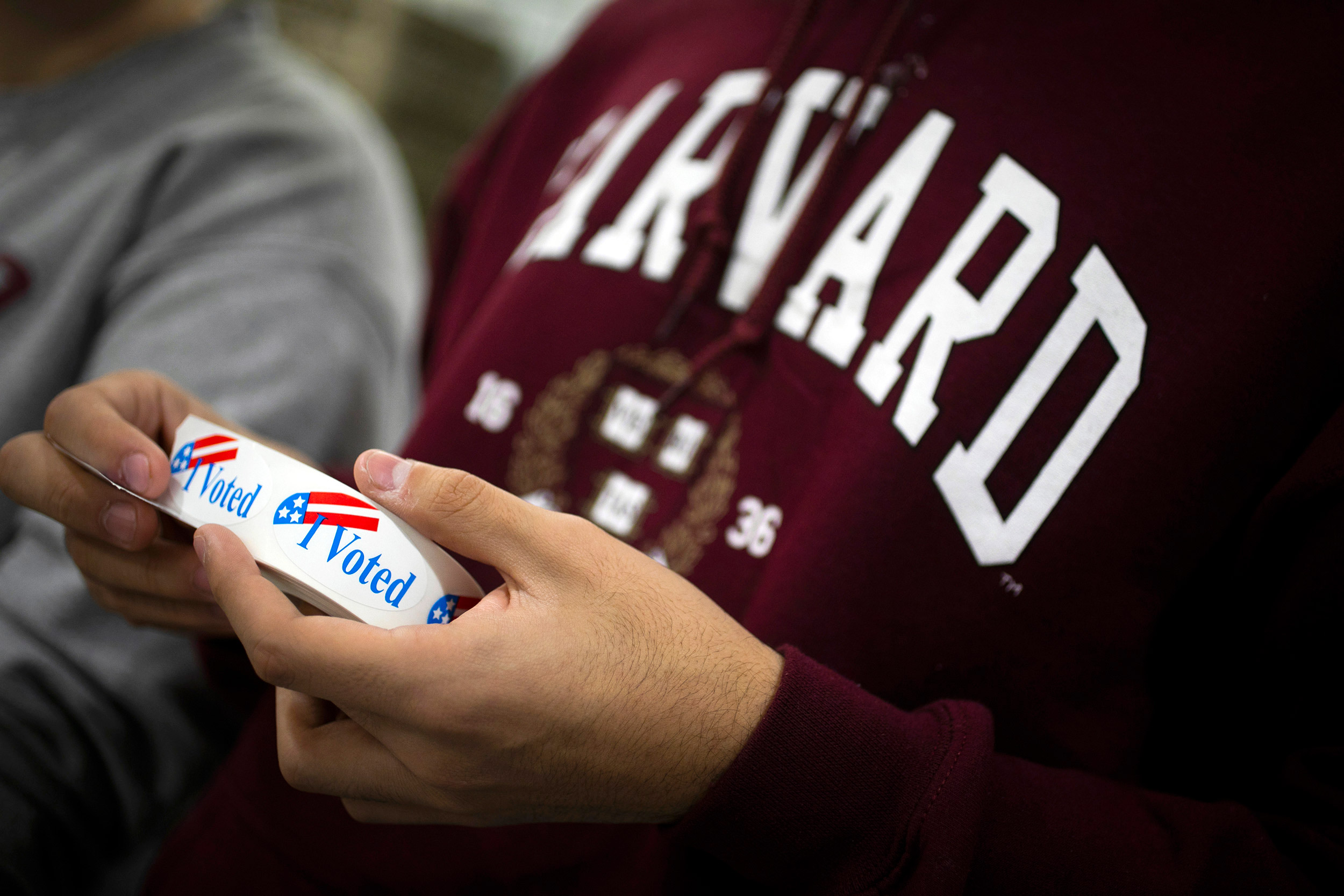
Rao forged ahead with an HVC pilot program, started in the fall, that matched college mentors with students at 18 high schools in Greater Boston to develop their own voter registration drives and encourage civic engagement among peers. The group planned for in-person training and mentorship meetings but has started developing virtual versions of both.
She also ramped up her work with New Voters, the nonprofit she founded in 2016, to train other youth to start voter-registration drives in their communities, and started working as a deputy campaign manager for a local candidate for the state House of Representatives.
This time is “so uncertain and it’s so scary for lots of people, but also it’s pretty scary for a democracy,” said Rao. “But this can also be a time where the youth voting bloc becomes a real force and becomes [more] present in society. And it would be a shame if we didn’t take advantage of that opportunity right now.”
From their home in Chicago, Nina Maksimova and Victor Buza leveraged their academic experience and networks at Harvard and beyond to build a community tutoring organization, Tutors Against COVID. Maksimova, a fourth-year doctoral candidate in astrophysics and astronomy, and Buza, who received a Ph.D. in physics from the Graduate School of Arts and Sciences in 2019, recruited eight colleagues as tutors for students from first grade through college.
The group provides free and reduced-fee sessions to families with fewer resources and asks those who can pay to donate their fees during the pandemic to a certified charity, such as Doctors Without Borders, Feeding America, and Global Giving.
“When social distancing started, it was so bewildering and confusing, and it just felt like there surely had to be something that we could do to be helpful,” said Maksimova, noting that the group is working with about 10 students and plans to recruit more in the coming days.
More like this
Another initiative spearheaded by GSAS affiliates is a collaboration between the group Bike Harvard and the Boston Health Care for the Homeless Program. Co-founder and former leader of Bike Harvard Marissa Grunes revisited submissions from an old Bike Harvard logo design competition and with a graphic designer, created a new Bike Harvard T-shirt, which is being sold online to raise money for BHCHP’s COVID-19 relief fund.
“One of the nice things about running [this] campaign is that it’s been a way for us to bring the Harvard bike community, and also the broader community, together without actually having to be in one place,” said Grunes, a Kernan Brothers Environmental Fellow at the Center for the Environment who received a Ph.D. in English in 2019.
The shirts feature designs by Sophia Liu, a doctoral student in biophysics and the joint Harvard-MIT Health Sciences and Technology program, and Emma Daugherty, a master’s student at the T.H. Chan School of Public Health. In the first round of sales, the group raised $250 for the fund, which provides testing and field treatment to Boston-area citizens experiencing homelessness. Grunes credited the designers, current Bike Harvard leadership in GSAS, and faculty mentors for promoting the initiative across personal and professional networks, and she anticipates a growth in sales in the next round.
“I think [many] people are sitting at home wanting to help and not really being sure what to do, because it just seems like the need is so great, and everybody has their own life to deal with and constraints in terms of their physical movements and where they can go,” said Grunes. “Putting this campaign together gave me an opportunity to think about ways we can help even within those constraints. Once you start looking, it’s amazing to see how many ways there are.”



